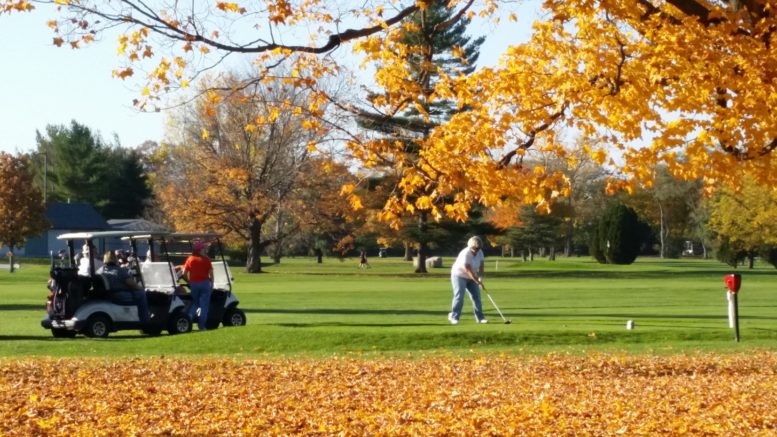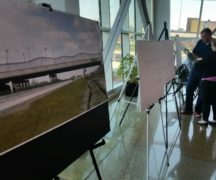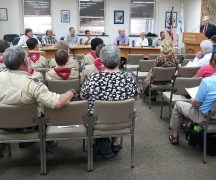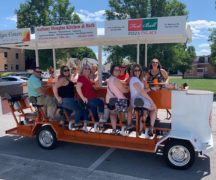By JAN LARSON McLAUGHLIN
BG Independent News
A city resident teed off over the arrangement between the city and the BG Country Club Golf Course is asking Bowling Green leaders to examine other uses for the acreage.
Citizen David Drain brought the issue to City Council last week, noting that the city subsidizes the golf course by paying a portion of its property taxes every year.
“I think we should consider better use of that property,” he said.
Drain questioned the need for two golf courses in Bowling Green, and suggested the city begin discussions on other uses for the acreage before the lease expires in two years.
The golf course, which sits next to City Park in the center of Bowling Green, has long been a source of both community pride and of complaints about limited and privileged use of public property.
The city’s lease of the 60 acres to Bowling Green Country Club expires in 2025. The country club owns the roughly 1.5 acres where the pro shop and restaurant sit on the north end of the golf course. The general public is allowed to play on the course.
When questions were raised in 2016 about the lease, then Mayor Dick Edwards explained the history of the acreage.
“This nearly 100-year private-public partnership has worked well for Bowling Green residents,” Edwards said. “They have benefited from a golf course for recreational purposes at reasonable rates without city dollars being used for the maintenance and upkeep associated with the property.”
“It has been the long-standing belief of the city, and I concur, that the value added to the residents of Bowling Green by having the Bowling Green Country Club far exceeds the amount we pay in taxes for the site,” the mayor said.
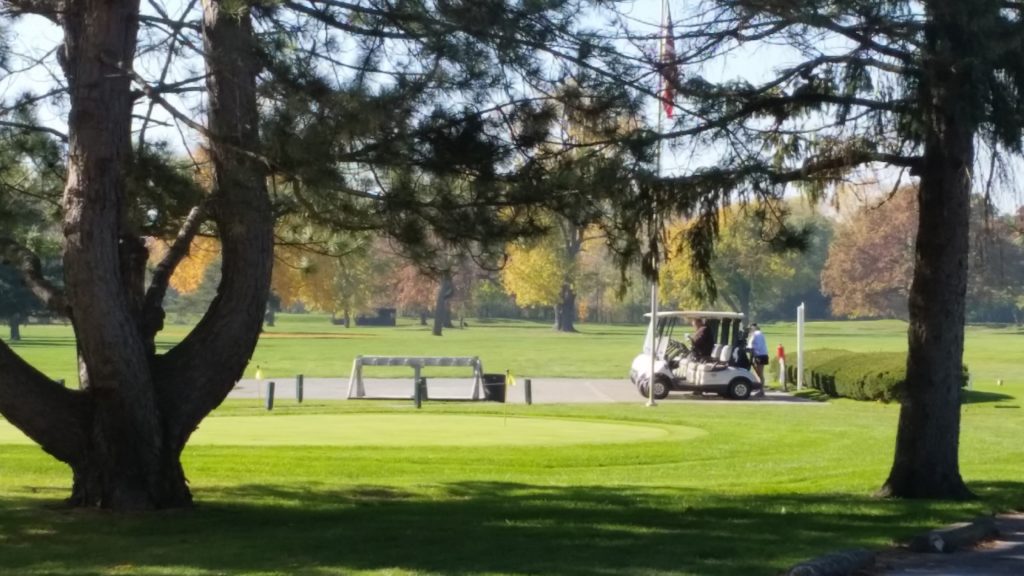
For years, the country club had paid all the property taxes for the golf course acreage. At some point, the payment was split between the country club and the city. And more recently, when asked by the country club for assistance, the city assumed all of the property taxes – which come to about $7,000 a year.
Current Mayor Mike Aspacher said the city did help the country club golf course when its revenues were down, but that trend is changing.
“It’s increased significantly,” Aspacher said of the number of golfers using the course.
BG Finance Director Dana Pinkert said in 2023, an agreed upon memorandum of understanding required the golf course to pay 25% of the property taxes. That would increase by increments of 25% each year, until the country club takes over the entire property tax payment in 2026, Pinkert said.
In other business at last week’s meeting, Wendy Manning updated City Council on the ongoing efforts to create a dog park closer to the center of Bowling Green, where more dog owners can walk to the park.
Manning mentioned that the Citizens for BG Dog Parks Committee has been busy raising awareness and funds for a dog park. Most recently, the group marched in the Holiday Parade, and is hosting a “Photos with Santa” event.
The committee is also working with city officials to create a lease for use of a section of Ridge Park as a dog park.
“We look forward to a collegial arrangement,” Manning said.
City Attorney Hunter Brown and City Council member Jeff Dennis agreed to meet last week to discuss the dog park lease.
Also at the meeting, Lindsay Jo Durham talked about Transgender Day of Remembrance. She noted that as she was speaking to council, the BGOPride organization was holding a vigil at Wooster Green.
The day was established in 1999, to honor transgender people lost to violence.
“We need to push past simple remembrance and performative activism to push for changes to the narrative,” Durham said. “For if we only honor the dead and not push for change or admit our own compliance in these structures that cause violence, we are doing nothing to help.”
“None of us are innocent,” she said. “Our task is to move from sympathy to responsibility. From compliance to reflexivity. From witnessing to action. It is not enough to simply honor the memory of the dead – we must transform the practices of the living.”
Also at the meeting, Municipal Utilities Director Brian O’Connell was asked why the city uses a “clamshell” claw to collect leaves in residential areas, rather than a vacuum like some other communities use.
O’Connell explained that the claw allows crews to move much faster through the neighborhoods, and while it may look like it damages the street surface, it does not. He also said the claw is a piece of equipment that the city also uses for snow removal.
Municipal Administrator Lori Tretter said the city is continuing to ask residents to reconsider raking their leaves for pickup, and instead “love ’em and leave ’em” on their yards where possible.

